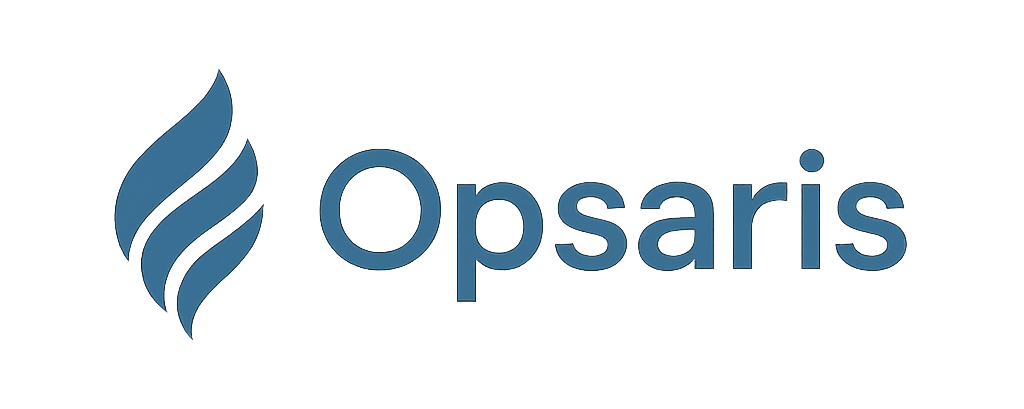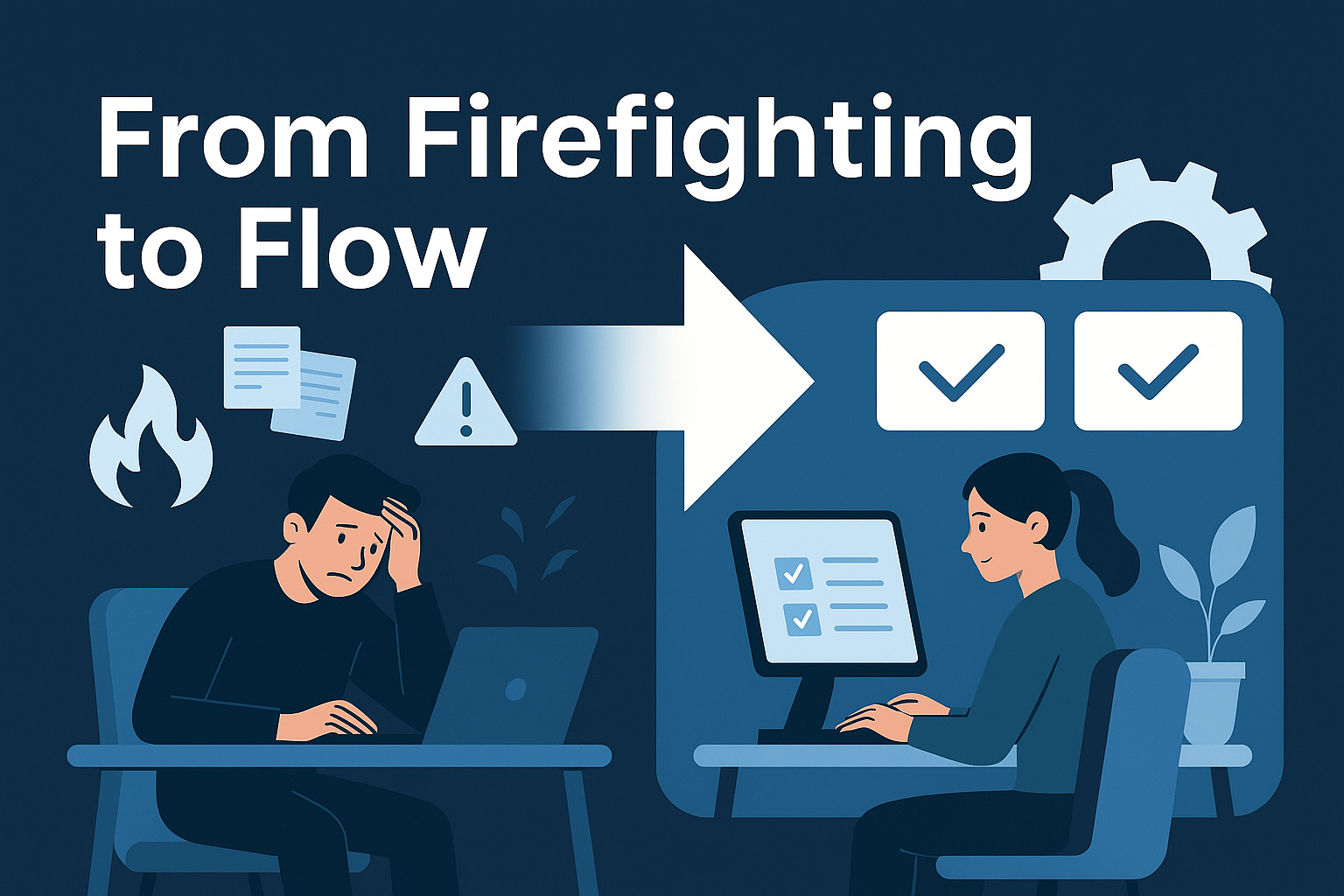From Firefighting to Flow – How to Stabilize and Scale Your Software Support Team
Are you tired of your software support team constantly firefighting? Does it feel like you’re always reacting instead of proactively solving problems? You’re not alone. Many software companies face the challenge of transitioning from a reactive support model to a structured, efficient one, especially as they scale. At Opsaris, we specialize in helping software support teams stabilize and scale, moving from chaos to control. In this post, we’ll explore how to shift from “firefighting” to a more sustainable workflow, ensuring your team can handle growth without burning out.
Identifying the Signs of a Reactive Support Team
Before you can implement changes, you need to recognize the signs of a reactive support environment. These indicators often highlight underlying issues that need to be addressed:
- Constant Reaction Over Resolution: Is your team primarily focused on responding to urgent issues rather than resolving the root causes? This leads to context switching and reduced productivity.
- Reliance on Heroic Efforts: Are operations dependent on individual heroics instead of established, repeatable processes and smooth handoffs?
- Unclear Escalation Processes: Are your escalation paths ambiguous, inconsistent, or influenced by internal politics? This can lead to delays and frustration.
- Unstructured Backlogs: Does your backlog lack clear prioritization and organization? Are the loudest voices often dictating what gets worked on?
These are not signs of individual failures but rather indicators of systemic problems. As ITIL 4 suggests, it’s important to “Start where you are” and identify areas that need immediate attention.
Strategic Improvements for a Scalable Support Team
Instead of trying to overhaul everything at once, we recommend a phased approach. Here’s how to implement strategic improvements:
1. Optimize Key Support Workflows
- Choose a Critical Workflow: Start by selecting one problematic workflow, such as ticket triage, issue prioritization, or escalations.
- Map the Current Process: Document the current process as it actually exists, not as it is supposed to be.
- Identify Bottlenecks: Determine where and why the workflow is breaking down.
- Implement a Single Change: Introduce one targeted adjustment to address the identified issue. Involve your team in this process for collaboration and buy-in.
2. Establish Clear Handoffs and Ownership
Efficient handoffs are crucial for smooth operations. They prevent your support team from becoming a bottleneck.
- Define Clear Ownership: Clarify ownership responsibilities at each support level.
- Create Concise Documentation: Develop playbooks or brief process documents to provide clarity without creating unnecessary bureaucracy.
- Structure Escalation Criteria: Implement clear guidelines for escalations to prevent every minor issue from being escalated.
3. Create Time for Strategic Thinking and Planning
Reactive environments leave little room for strategic thinking. By introducing small, consistent practices, you can create space for reflection and planning.
- Weekly Backlog Reviews: Conduct brief weekly reviews of the backlog (even 10 minutes can make a difference).
- Purposeful Daily Check-ins: Use daily stand-ups or asynchronous check-ins to identify and address roadblocks.
Conclusion: Transforming Your Support Team
Scaling alone doesn’t disrupt support; unstructured scaling does. By introducing clarity, structure, and rhythm into your operations, you can create a more efficient and effective support environment. At Opsaris, we help software support teams move from firefighting to proactive problem-solving. When teams gain control and focus, they unlock their potential for innovation and growth.
Key Takeaways:
- Identify reactive support patterns to pinpoint areas needing improvement.
- Optimize workflows one at a time for targeted improvements.
- Establish clear handoffs and escalation criteria.
- Create time for strategic thinking with regular reviews and check-ins.
Ready to transform your software support team? Contact Opsaris today to learn how we can help you move from firefighting to flow.





